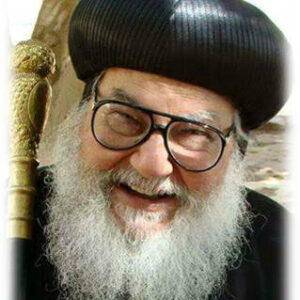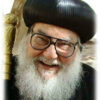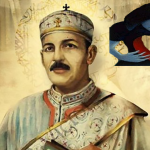The Concept Behind this Exercise: These prayers are called "arrow-like prayers" by the Church for they are, in a manner of speaking, spiritual arrows that penetrate the thick veil that can exist between man and God, rises to the pinnacle of heaven and enters the sanctuary of the Lord and is most effective. Practical Application: …
The Concept Behind this Exercise: These prayers are called “arrow-like prayers” by the Church for they are, in a manner of speaking, spiritual arrows that penetrate the thick veil that can exist between man and God, rises to the pinnacle of heaven and enters the sanctuary of the Lord and is most effective.
Practical Application: 1. You should choose an appropriate time to carry out this exercise. You can, for example, repeat this prayer several tens of times in a few minutes before the morning prayers (Prime), before the evening prayers (Vespers), or when you go to bed at night. On all these occasions, you either get ready for prayer or you protect your heart and mind from being immersed in thoughts or images of evil.
2. You will initially feel somewhat bored and that it is a monotonous routine. This feeling, however, will disappear if you concentrate on what you are saying.
3. At the beginning, the words will be uttered by your mouth; then your mind will pay attention to them and you will feel that you are engaged in a humble dialogue with the Lord because of your sins. Next, your feelings are stirred and the prayer is entrenched in your heart in joy and the awareness of the presence of the Lord Jesus Christ. What is joyful is that this “storing up” in your heart will be very important for your daily life. You will discover that this prayer will leap from your heart to your lips unintentionally and you will find yourself saying: “My Lord Jesus Christ, have mercy upon me…..”. This will alert you to the presence of the Lord and to the possibility of repeating it several times. If you are in a sinful situation, you will correct it quickly, and if you are upset for any reason, you will quickly be comforted by the Lord.
The Purpose of the Exercise: The validity of the objective, therefore, is basic and the guidance of your spiritual father guarantees the clarity of the purpose and the soundness of the way. This exercise has its roots in the gospel because it is taken from the prayer of the tax collector who stood afar off and would not do much as lift his eyes to heaven, The Exercise of the Arrow Prayer Page 2 but smote his chest saying: “God be merciful to me a sinner” (Lk. 18: 13), and who went down to his house justified. Its roots are also in the Old Testament, for David, the prophet, said: “O, how I love Your Name; it is my meditation all the day” (Ps.119:97), and “I remember Your Name in the night, O Lord” (Ps. 119: 55).
Has not St. Peter said: “In the name of Jesus Christ of Nazareth, rise up and walk……. Nor is there salvation in any other, for there is no other name under heaven given among men by which we must be saved.” (Acts 3: 6, 4: 12)
Did not Isaiah the prophet say: “The desire of our soul is for Your Name” (Isa. 26: 8)? It is the name of salvation: “and you shall call His name Jesus, for He will save His people from their sins” (Mt. 1: 21). It was an exercise which St. Augustine advised his disciples to do asking them to repeat always: ” My Lord Jesus Christ, have mercy on me; my Lord Jesus Christ, help me; I praise You, My Lord Jesus Christ.” The Psalmody gives us the same feeling when we repeat continuously: “My Lord Jesus Christ, my good Savior.” What is important is that the call to the Lord Jesus Christ be repeated, if only in various short requests as the need arises, and any number of times in a flexibility that aims at bringing us into the presence of God. The idea is not to follow fixed way or repeat it an exact number of times, but to say it in spiritual freedom. When we feel we want to speak differently with the Lord, we leave this prayer and talk to Him about what we want. It is only a “key” that enables us to enter to the Lord. A State of Tranquility; The fathers say that this exercise puts you in a state of “tranquility of the heart”, or spiritual, intellectual, psychological, and nervous peace which we need urgently in our era which is full of causes for worry. What is most wonderful about this exercise is that it goes with you everywhere: when you are among people, on the bus or waiting for the bus, before going to bed and on getting up. It is an exercise for every time and every place.
Let us repeat together, my dear brother: “My Lord Jesus Christ, have mercy on me; my Lord Jesus Christ, help me; I praise you my Lord Jesus Christ.”
Join Us: Sign Up Today!
Tags:












